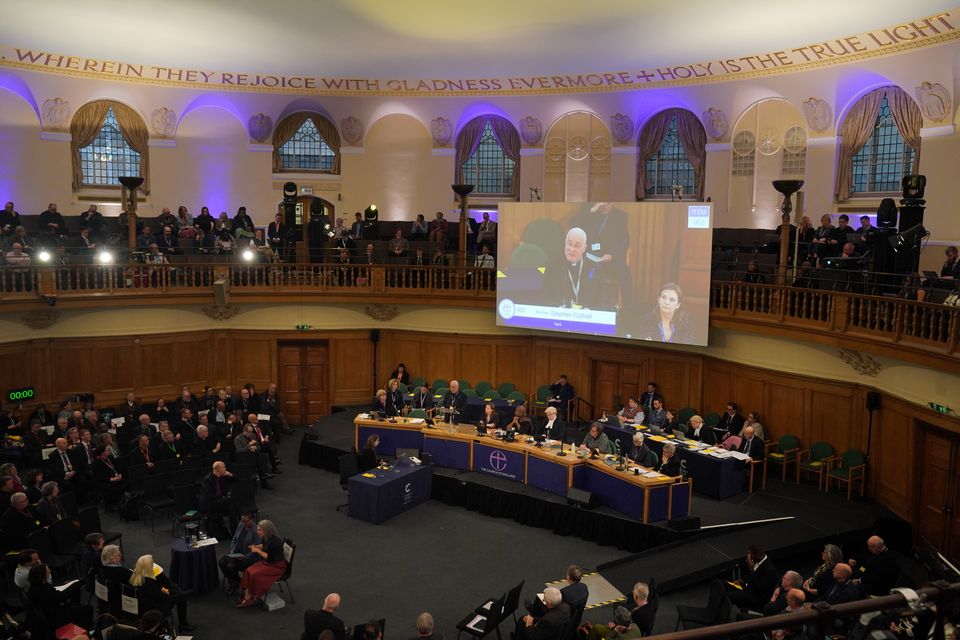The Archbishop of York has apologised to the Church of England’s parliament for ever “completely unintentionally” having been thought to influence voting in the selection of a new bishop.
Stephen Cottrell last month rejected allegations that he bullied members of a committee to secure the appointment of a man who later quit amid media coverage of sexual assault and harassment allegations against him.
John Perumbalath stepped down as Bishop of Liverpool, without any admission of fault or liability, after Channel 4 News reported that one woman had accused him of kissing her without consent and groping her, and another accused him of sexual harassment.
The second complainant identified herself as Bishop of Warrington Beverley Mason.
A news report from someone who sat on the committee which met in 2022 to discuss the Bishop of Liverpool appointment claimed Mr Cottrell and Bishop of Oxford Steven Croft had coerced other members to change their vote despite safeguarding concerns about Mr Perumbalath.
At the time a spokesperson for Mr Cottrell said: “The Archbishop of York and Bishop of Oxford categorically reject any suggestion of coercion or bullying during a Crown Nominations Commission (CNC).”
Addressing the Church’s General Synod on Thursday, Mr Cottrell paid tribute to those he has served on committees with but acknowledged “it hasn’t always been easy”.
He told those gathered in central London: “I want to publicly both acknowledge your integrity and commitment and also, if sometimes I have – I would say completely unintentionally – been thought of to influence the vote in any way, I publicly apologise for that.”
His apology came during a debate on proposed changes to the CNC’s voting process.
Archbishop of York Stephen Cottrell addressing the General Synod this week (Jonathan Brady/PA)
Moves to scrap a secret ballot, reduce the majority needed to submit a chosen candidate’s name to the prime minister and give a second vote to the person presiding over the meeting in the event of a deadlock were all rejected by Synod.
The debate heard the proposals – said to have been put forward to address the issue of agreement not being reached – branded a “power grab”, a “PR own goal” and likened to the creation of a dictatorship.
The CNC will choose the next Archbishop of Canterbury and its full membership is expected to be known next month.
Among them will be the Archbishop of York or, if he chooses not to be a member, a bishop elected by the House of Bishops; three representatives elected from the Diocese of Canterbury; and five representatives from other churches in the Anglican Communion.
